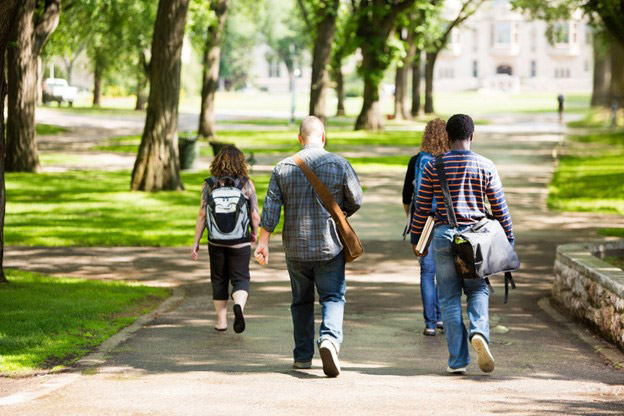
Library
Wastewater Testing Protects Students On Campus

October 5, 2022

During the peak of the Covid-19 pandemic, campus outbreaks led to a disruption of in-person classes and forced extended campus lockdowns. Considering the highly infectious character of the SARS-CoV-2 virus that causes Covid-19 illness, socializing and communal living at college campuses provided an ideal setting for the contagion, which spread quickly in dorms as well as off-campus housing.
With the introduction of the innovative wastewater epidemiology technology for SARS-CoV-2 detection in communities, dorm wastewater has proved to be an ideal area for testing in colleges. Testing wastewater offers some key advantages from preventive early warning signals and the reliability of results to the affordability and non-intrusive testing approach. Compared to testing individual students regularly, testing wastewater is significantly cheaper and faster, even when more focused screening follow-ups and other surveillance data are required.
Benefits of Wastewater Surveillance on Campuses
Wastewater surveillance on campuses has emerged as an important complementary method for Covid-19 screening to help protect college students and staff against infection. Many institutions of higher education have adopted and encouraged wastewater epidemiology, which serves as an early warning system to inform proactive public health decision-making and help prevent or slow disease spread on campus.
Key advantages of campus wastewater surveillance include:
- Early warning about the emergence of new Covid-19 cases within the campus area, alerting the health agencies to take preventive and protective action.
- A time-efficient and low-cost screening approach because just one wastewater sample represents a pool of a large number of college students, which can complement clinical testing and other methods.
Educational Institutions Should Consider Campus Mitigation Strategies to Protect Students from Covid-19
Institutions of higher education (IHEs) and schools that include on-campus housing are usually served by the same wastewater treatment plants as the local communities. The treatment plant will receive waste from both residential and non-residential buildings as well as college lab facilities (and sometimes from an on-campus medical center or hospital). However, with careful planning, it is not too difficult to isolate samples from specific buildings or areas.
To evaluate the viability of implementing campus wastewater surveillance, the IHEs should work in close coordination with public health officials and campus health services, as well as private companies such as Biobot Analytics that are doing pioneering work in the field of wastewater epidemiology. The expert teams at the wastewater surveillance company can help develop campus Covid-19 early detection, assessment, and mitigation strategies.
The wastewater surveillance company can help the IHEs determine the potential implications of detecting the virus in the campus sewer system and what type of public health interventions may be beneficial. These issues should be considered prior to the sampling and testing process with treated or untreated wastewater.
How Does Campus Wastewater Monitoring Work?
Biobot Analytics collects the wastewater samples from buildings in and around the campus and then sends them to our company’s laboratory for processing, testing, and analysis. Biobot is able to offer quick data turnaround (1-3 business days) for accurate and up-to-date results. The college authorities can assure the students and staff about the privacy and confidentiality of the process because wastewater testing on the campus cannot identify distinct individuals who might be infected with the SARS-CoV-2 virus.
With that said, the wastewater data is still powerful because it indicates trends and enables health authorities to move fast to control or mitigate the virus spread.
The college may adapt the testing protocol, data analysis methods, and monitoring wastewater utilities according to their unique needs and based on the patterns indicated by the data analytics regarding where the next outbreak might be emerging. For instance, when a spike in viral loads is noticed at a particular dorm, the campus health authorities may swiftly roll out clinical testing among the students in the dorm.
Wastewater monitoring captures all infections, even those students who might be infected, but have no visible symptoms yet. This helps inform mitigation actions so that the outbreak can be prevented from spreading rapidly and effective disease control is maintained. These efforts help in keeping the students and staff safer while allowing the campus to remain open and in-person classes to continue uninterrupted.
Choose Biobot Analytics to Implement Wastewater Surveillance on Campus
Founded at the MIT campus, Biobot Analytics is a leading wastewater epidemiology company that is helping turn sewage infrastructure at campuses and hundreds of other locations nationwide into real-time observatories for public health. Dr. Mariana Matus launched her research in wastewater epidemiology as a Ph.D. student at MIT with an aim to help improve public health.
With support from her professors at MIT, and teaming up with Newsha Ghaeli, a researcher in urban studies, Dr. Matus completed her Ph.D. dissertation in Computational Biology, which attracted widespread attention from scientific publications and mainstream media alike. This became the foundation behind the emergence of Biobot Analytics as a pioneering wastewater data platform.
In addition to helping public health agencies improve the health of communities throughout the country and the world, Biobot Analytics also supports campus-level and building-level monitoring for institutional and corporate clients. Biobot’s work is aimed at helping minimize disruptions in their operations as students and employees gradually return to campuses and workplaces.
Notably, the CDC has chosen Biobot Analytics to help expand its National Wastewater Surveillance System (NWSS) to help with Covid-19 as well as prepare the nation to combat future pandemics. If you wish to learn more about how Biobot Analytics can help with Covid-19 mitigation strategies at your campus or business facility, reach out to speak with one of our experts. To get started, fill out this online form today.


